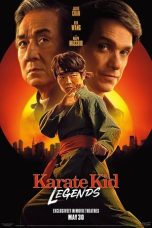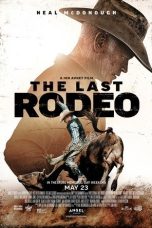Desert of Namibia (2024) Movie Review – Where to Watch Online
Director Yoko Yamanaka’s sophomore feature, Desert of Namibia, is a hypnotic and unflinchingly raw portrayal of a young woman teetering on the edge of identity, emotion, and existence. Known in Japan as Namibia no Sabaku, the film made waves with its Cannes Film Festival premiere and is now trickling into international markets, including North America. If you’re looking to watch a film that pushes emotional boundaries while offering a searing critique of youth in modern society, this is it.
A Fragmented Portrait of Youth
The film follows Kana, played with mesmerizing ferocity by Yuumi Kawai. At just 21, Kana drifts from boyfriend to boyfriend, with no real desire for stability, success, or societal approval. Her character isn’t the idealized portrait of youthful ambition; she’s impulsive, sometimes selfish, often erratic, and perpetually disillusioned. Through her chaotic existence, Yamanaka weaves a coming-of-age tale that feels both painfully real and viscerally cinematic.
Set in an unforgiving urban Tokyo, Desert of Namibia is more than a story—it’s a psychological excavation. Kana’s behavior is misdiagnosed as bipolar disorder, but what Yamanaka truly unpacks is the intersection of societal repression and internal confusion. The film is grounded in the harsh realities of mental health, framed within a rigid, patriarchal society where women like Kana often find themselves misread and misunderstood.
The Namibian Desert as Metaphor
The title may throw off some viewers, but it becomes increasingly metaphorical as the story unfolds. Kana frequently watches live footage of camels in Namibia’s desert on her phone—perhaps seeking escape, perhaps searching for meaning. That barren, distant landscape becomes a mirror to her internal emptiness. Just as the desert stretches endlessly without direction, so too does Kana’s life.
This metaphor is particularly potent because Desert of Namibia is virtually scoreless. The absence of music creates a chilling echo chamber, amplifying Kana’s actions and silences. Every sigh, glance, and breakdown is uncomfortably audible, contributing to the suffocating tone of the film.
Performance That Commands Attention
Yuumi Kawai’s performance as Kana is a revelation. With no clear trajectory and riddled with emotional contradictions, Kana is an incredibly difficult character to portray. Yet Kawai brings her to life with startling authenticity. From quietly scrolling through her phone to explosively unraveling in intimate moments, Kawai’s embodiment of emotional volatility is award-worthy.
There’s a raw animalism to Kana—she eats frozen food straight from the fridge, lives wherever her boyfriend happens to be, and expresses desire with reckless abandon. Yet she’s also deeply afraid: of human complexity, of disappointment, of not understanding herself. These contradictions are what make her so compelling.
Cinematic Language and Direction
Yamanaka’s decision to film in a boxed 4:3 aspect ratio reinforces the feeling of confinement. The visuals are often claustrophobic, trapping Kana in both physical and metaphorical rooms. Several long takes, softened color grading, and minimal camera movement evoke the redundancy of urban living. Like Noah Baumbach’s Marriage Story, this film is largely about conversations—but these are conversations drenched in psychological tension and existential dread.
It’s worth noting that the film is long—nearly two and a half hours—but rarely drags. Its pace mimics life’s repetitive cycles and emotional fatigue. Kana’s frequent mental departures—fantasies of a pink room or silent woods—are haunting, surreal breaks from an otherwise oppressive reality.
Themes: Mental Health, Relationships, and Self-Discovery
Desert of Namibia is not an easy film to watch. Its depiction of trauma, psychological collapse, and toxic dynamics between partners is intense. Yet, these elements are never overplayed. The abuse, both emotional and physical, is portrayed with a starkness that avoids melodrama. It’s painful but important.
Kana’s journey is about survival at its most basic: shelter, food, connection. She doesn’t seek purpose or ambition, but merely a place to be understood. In one pivotal moment, she finally confronts the idea that people—herself included—don’t fully know or understand each other. That realization is both tragic and liberating.
Where to Watch Desert of Namibia Online
Currently, Desert of Namibia is available to stream in Japan via Apple TV Japan. For viewers in the United States and other international regions, you can monitor its availability on JustWatch, a reliable platform that tracks streaming and rental options across services like Amazon Prime Video, Apple TV, Google Play, and Vudu.
While it hasn’t hit major U.S. platforms yet, its presence at Cannes strongly suggests that a North American release (either theatrical or digital) is imminent. Keep an eye on independent cinema distributors or boutique streaming services like Criterion Channel, MUBI, or Kino Now.
Final Thoughts: A Must-Watch for the Emotionally Brave
Desert of Namibia is a complex, deeply human film that demands your patience and emotional investment. It’s a character study that challenges preconceptions and dares to portray discomfort as a form of growth. Not every viewer will relate to Kana—but many will recognize fragments of themselves in her confusion, her apathy, her longing.
Yoko Yamanaka proves once again that she’s a voice to watch in contemporary cinema. With a gripping narrative, intimate performances, and a brutally honest look at mental health, Desert of Namibia is a film that lingers long after the credits roll.
If you’re drawn to emotionally nuanced films that explore mental health and identity, don’t miss Desert of Namibia. Add it to your watchlist, track its release on JustWatch, or experience it firsthand on Apple TV Japan. And if it’s not yet available in your region—bookmark it. This is a film worth waiting for.

















